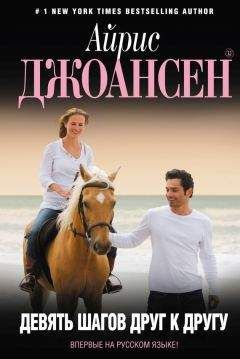John Creasey - Meet The Baron
So he laughed, and scoffed at her.
They danced together before a cavalier claimed his privilege and whirled Lorna away from Mannering. He found himself dancing with a Columbine whose eyes behind her mask suggested nervousness. He put her at her ease, but was glad that she slipped away when the music stopped. He wanted no ties for the moment.
He edged towards an exit, watching the glittering throng that had gathered together to honour the Ramons, trying to make sure that he was unobserved.
Here and there he recognised someone whom he knew, but for the most part the costumes and the masks contrived to hide the identity of the dancers. The little added zest that invariably accompanied London balls when they were inspired by a foreigner was very much in evidence. The music was a little mad; the costumes were frequendy exotic, the laughter unforced, but helped with wines.
Mannering looked at the great decorated clock in the centre of the ceiling and saw that it was eleven o’clock. That left an hour before the masks would be removed and recognition assured. One hour to work in. It was little enough time.
He slipped towards a cloakroom, staring at the floor as he went. Casual acquaintances passed him without recognising him. His luxuriant wig, rouged cheeks, and high cravat afforded excellent disguise, but he was glad when he reached the privacy of a cubicle without hearing his name uttered. He was flushed a little, and his eyes were gleaming.
From the main hall the strains of the music were floating. He smiled as he slipped out of his costume and revealed that of a harlequin beneath. The latter had been comfortable to wear, and no one at the New Arts Hall knew that he had two costumes; nor if they had known would they have guessed why.
He lit a cigarette, donned his mask, and left the cloakroom, carrying his overcoat and his top-hat over his arm. He reached the first exit from the building, glanced out, saw half a dozen commissionaires and attendants, but felt certain that he could get away unhindered and unrecognised.
That rush of excitement which had possessed him several times before on the start of a haul made his heart thump, and he was more impatient than usual.
Looking neither right nor left, he went from the building. In Queen’s Road he beckoned the first passing taxi. He jumped in quickly, shouting an address: “Twenty-seven Crown Street, cabby, and hurry, will you?”
The voice was no more like Mannering’s than Mr Mayle’s was. The driver shrugged at the unnecessary haw-haw, slipped in his clutch, and made quick time. Outside the dark shape of No. 27 Crown Street, W.i, Mannering left the taxi, paid the driver without tipping him extravagantly, and watched the cab disappear into the shadows. Then he turned away.
A strange, almost unnatural silence filled the air.
In the distance the hum of the traffic could be heard, but
Crown Street was quiet and secluded. A long, narrow thoroughfare, it was useless as a short-cut for motor traffic, and at night only the local people and an occasional policeman traversed it.
Mannering looked at his watch, to find that it was twenty minutes past eleven.
“He should be here,” he muttered, and from the fact that he was talking aloud realised his own tense excitement. He waited, pricking his ears to catch the wanted sound. It came at last — the heavy tread of the policeman he expected.
Mannering had been in this street three nights in succession. He had discovered the policeman’s usual time, and he knew that between eleven-twenty and eleven-fifty only a casual wayfarer would pass by; once the man had gone he could start his job.
He waited beneath the shadows of a spreading tree. The policeman walked on ponderously, without flashing his lantern. Mannering watched him disappear, and then turned towards the tree, a tight smile on his lips.
He had studied the tree and garden beyond, and the narrow passage beyond that. He had climbed the tree on the previous night, and he knew just how long it would take him to get to the end of the passage. Never again, he told himself, would he start a thing without ample preparation.
The sound of the policeman’s footsteps died away. No other came. Mannering climbed the tree quickly, a task made easier by several knots which stood out from the trunk. From the first branch it was a simple matter to jump over the wall into the garden of 27 Crown Street. He landed lightly, and grinned to himself more freely as he went through that garden.
Every taxi-driver who had taken a fare from the neigh-bourhood of the New Arts Hall would be questioned on the following morning, but no one would suspect that the man who wanted the Crown Street house was connected with a robbery which had taken place at Queen’s Walk, a quarter of a mile away from Crown Street. Actually the garden and the passage took him to Queen’s Walk in thirty seconds, but the policeman who realised it would have to be smart.
The Walk was lit by occasional street-lamps, and the unwinking side-lights of two stationary cars broke through the darkness. Mannering slipped into the doorway of the first house past the passage and slid a pick-lock into the keyhole.
It was an old-fashioned lock, and gave little trouble, for the picking of a lock came easily now. Mannering pushed the door open as the lock clicked back. He went inside quickly, and closed the door. For a moment he waited in the hall, but no sound came. The house seemed empty.
It was, he believed, and he smiled as he recalled the flash of inspiration that had told him that the house, rather than the ballroom, was the best place at which to make an attempt.
Rented by Carlos Ramon for his six months” sojourn in England, the place was deserted for that night, when Ramon and his wife were at the Ball; the servants, Mannering knew, had permission to be out. He had prepared for the possibility of meeting a caretaker, but he doubted whether Ramon would have taken that precaution.
Mannering hurried up the stairs, flashing a small electric torch to guide him. His rubber-soled shoes made no sound on the oak landing as he reached it, and his face was covered with the thin blue mark that he used as much to enable him to merge into a general scheme of darkness as for a disguise.
Silently he went along the landing. The first three doors he passed were unlocked, and he went on, but the third refused to open when he turned the handle.
He stopped, and the pick-lock slid into the keyhole. Two or three dexterous twists made the lock click back. He opened the door very quickly and stepped into the room. The moment was near now.
From two windows he could see a dim light streaming, light from the street-lamps. He hurried to the windows, experimented with the blinds, and discovered with relief that they were of the roller type. He lowered them silently, and then looked round quickly.
There was a slight perfume in the air, and he smiled, needing no telling that Carlotta Ramon had dressed in here a few hours before. He flashed his light on to the dressing-table, and from one of the drawers a few small trinkets rewarded him. He opened each drawer quickly and silently, finding a diamond brooch and an emerald pendant which made his eyes glisten. But he had no time to gloat over his success. He closed the drawers, left the dressing-table, and hurried to the walls, where he hoped to find bigger game. He lifted each picture, finding the safe behind a large oil-painting opposite the door.
He worked on it, quickly, patiently, efficiently.
Now that he was actually at work the excitement had cooled. He knew that he was fighting against time, and he could not afford to fumble. Within ten minutes he must be out of the house, together with the contents of the safe . . .
It clicked open at last.
Mannering’s heart leaped. Not since he had robbed Septimus Lee had he known such exhilaration as he felt at that moment. He put his hand inside the safe quickly, and three black cases, unlocked, yielded necklaces. A wad of small denomination notes followed the jewels into his pocket. A pair of diamond ear-rings and pearl solitaires joined the notes. He could not have found a richer plucking, and his smile was wide.
He was chuckling to himself as he slammed the door of the safe and turned round . . .
And then he stared at the figure in the doorway, absolutely dumbfounded. He had heard no sound, had no idea that he was being watched, but the man was there !
And he was holding a gun in his right hand.
Mannering’s head seemed to whirl as he waited, as he watched the man advancing towards him. He had been wrong, he knew, and he cursed himself for his madness. He should have allowed himself time to look through the house, to make sure that there was no watchman. He should have made sure from the Ramons, if necessary, whether they kept a man; but it was too late now.
The gunman stepped towards him.
It meant — the end.
CHAPTER TWENTY
A PATCH OF BLOOD
THAT MOMENT WAS VERY VIVID TO JOHN MANNERING.
The approaching man, the gun, the slow, almost stealthy movement, as if the other were expecting an attack, and the thumping of his heart against his ribs, remained in his mind for years.
He stood dead-still, staring.
His passiveness seemed to make the other hesitate. He stopped, two yards away from Mannering, and his gun moved threateningly.
“No funny tricks,” he muttered, half to himself. “And now take yer mask off, mister.”
Mannering’s mind was racing as he tried to find a loophole; but he did not move. The other’s voice took on an ugly note.
“If you don’t snap it off I’ll shoot,” he said.
Mannering managed to laugh, little though he was feeling like it. The sound echoed unnaturally through the room, and it sent uncertainty into the other’s mind. The short, stumpy fingers tightened round the handle of the gun.
“I’ve warned you . . .” he started.
Mannering’s heart was going more steadily now. He was doing what he wanted, taking the only possible chance by making the other nervous. The man had the gun, and had reckoned that he could instil fear into Mannering with it. Mannering’s silence unnerved him. The gun wavered. It was one thing to threaten and another actually to pull the trigger.
“Take your mask off!” The man’s voice rose again. “Now, listen to me, my man . . .”
Mannering’s right hand moved towards his mask, a gesture of defeat. He fiddled with it for a moment, while the other watched him closely.
Mannering was judging the distance all the time. Two yards separated them, and he could reach the man if he jumped. It would be touch-and-go whether he succeeded in preventing the gun from going off, but the chance had to be taken. He tensed the muscles of his legs, actually started to take the mask from his face.
“All right,” he muttered dully. “You win. . . .”
On the word “win” he jumped!
That split second seemed an eternity. He heard the man shout, saw the gun move up, thudded his fist into that heavy face, felt the jolt, heard the gasp of pain from the other, and heard the roaring of the revolver!
A sheet of flame flashed in front of his eyes, and he felt a furious burning in his shoulder. But the gun was clattering to the floor, the gunman was staggering back bewildered, and Mannering’s fist was thudding into his face again. Mannering was hitting regularly, almost automatically. One part of his mind was concentrated on the struggle; the other was working on the next problem — how to escape.
That revolver-shot must have been heard outside. If the place was surrounded, if curious residents or a passing policeman heard it, the odds were heavily against him. In any case speed was the essential factor. He hadn’t a moment to lose.
The man was fighting back doggedly all the time. His fist caught Mannering in the stomach. Mannering gasped, and staggered away, guarding himself as best he could. He recovered after a moment, and fought back a fierce rush from his enraged opponent; and then he saw his opportunity. The man had thrown caution to the winds, and for a moment his chin was bare . . .
Mannering put every ounce of his strength into the blow. His fist caught the other’s chin, and the man reared upward, then sagged downward with a little moan. Mannering’s knuckles were torn; the pain in his shoulder was almost unbearable. But the man was unconscious, and the chance had been won.
Mannering looked round quickly, and the pencil of light from his torch stabbed through the gloom. He made sure that he had dropped nothing during the scuffle, refastened his blue mask, and then made for the door.
From outside the house came the thudding of footsteps. As he raced down the stairs noiselessly he saw the glare of a bull’s-eye lantern through the window-panel of the front door. Beyond, very vaguely, he could see the helmet of a policeman. The front-door knocker banged, reverberating through the hall. Mannering swore under his breath. The only outlet was the back way now, and he had no idea of the lay-out of the house. Once again he had not made sufficient preparations.
He took a chance, racing along a passage by the stairs, flinging open a door that led through a room lined with books, through another short passage and into a kitchen. He rushed to the door of the room, and as he did so he could hear the banging at the front of the house and the echo of angry voices.
The back-door was fast. Mannering drew the bolts, almost feverish with anxiety, and there was sweat on his forehead now. He pulled it open at last. . . .
And then, for a moment, he stopped dead-still, and he told himself that the end had come.
A policeman was climbing over the wall at the back of the house, and already the helmet of a second constable was poking above the brick-work. He had been out-manoeuvred; he had not even thought of this. God, what a fool he was!
But his mind worked quickly. Faced with this new problem, he grew very cool and collected. He waited in the shadows of the kitchen, and slipped his hand into his pocket, round the butt of the gas-pistol he always carried. There was no time for half-measures.
The policeman dropped to the ground, stumbled, picked himself up, and hurried towards the door. The second man followed him quickly. Mannering waited until the first was within two yards of him, and then he stepped out of the shadows.
The policeman’s gasp of surprise came clearly, but as quick as a flash he lifted his truncheon. Mannering could see him clearly.
“Better take it quiet,” he warned.
Mannering’s answer was to level his gun. The man’s eyes widened; he dropped back a pace, and his obvious fear made Mannering chuckle to himself. There was a soft hiss of escaping gas, and the policeman uttered a single, strangled cry as the ether took effect, and he slumped down. But the advantage was a brief one, and the second man leaped forward. Mannering had no time to use the gas this time. He clenched his left fist and smashed it into the other’s face.
The policeman reeled backward, his hands to his nose.
Mannering waited for nothing more. He raced to the end of the garden, grunting as he saw the garden-seat which rested against the wall, jumped on it, and swung over the top. The drop to the other side was a nasty one, but he managed to keep his feet as he landed, although the jolt to his wounded shoulder was agonising.




